Spotlight on Tegan Johnston
Jun 5, 2016
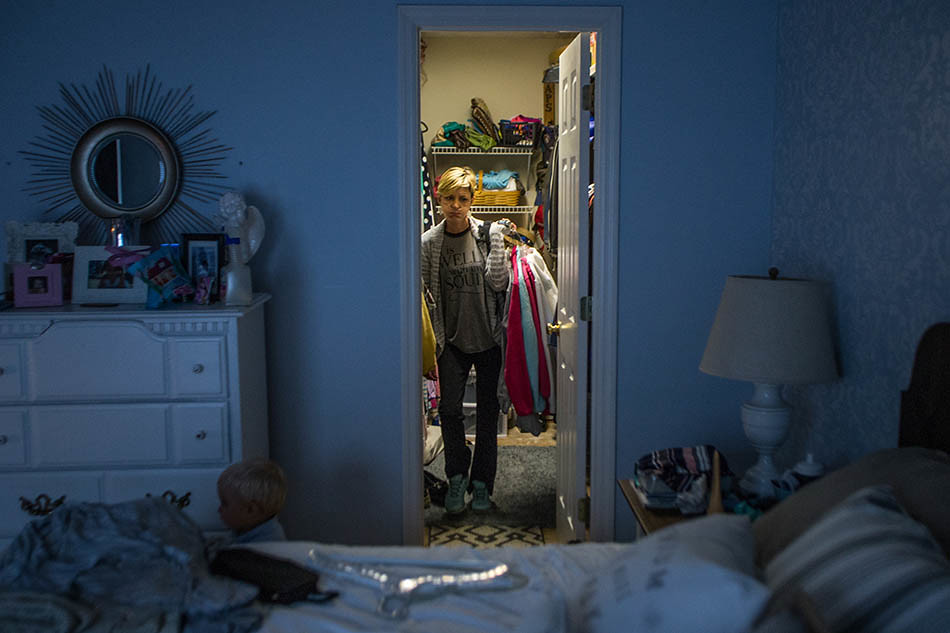
TID:
This is an intimate and lovely image. Can you tell us a little about the picture?
TEGAN:
Thank you so much for the opportunity to share a little more about this story.
This story holds a special place in my heart. It is about a woman who is facing an intense and intimidating double lung transplant operation. About 80 percent of people who have a lung transplant survive the first year. Each year following there is about a ten-percent drop rate.
The numbers are bleak, but the alternative of doing nothing is worse.
Autum Hall was born with a rare genetic lung disease, Bronchiolitis, that caused her lungs to lose their elasticity. Her lungs were functioning around 16 percent when her doctors decided that it was time for her to relocate to prepare for the operation.
TID:
You worked hard to develop a deep access to the project. Can you talk about how you approached it at the beginning to develop this?
TEGAN:
I met Autum after I had expressed an interest in the organ donation process. I wanted to meet an organ recipient candidate to understand what an organ donation would mean to him or her and what going through that process would be like.
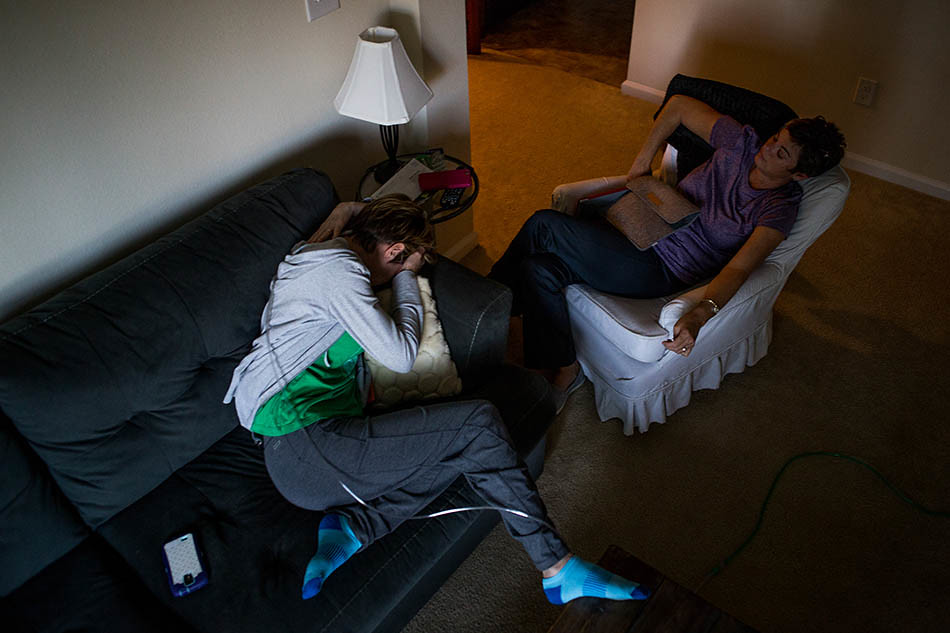
When I met Autum, the first thing she told me was that she did not want a transplant and that she hoped to postpone the procedure for as long as she could. It never occurred to me that organ recipients do not want these transplants. They find themselves in a desperate situation and are deeply grateful to be offered an extension of life. However, the risks are great and the effects are ones they will live with for the rest of their lives. She told me she was hoping to postpone the process for another six months or so, but I was welcome to follow her story if I was still interested.
This topic was personal for me. I told her if she was willing to stay in touch and let me share her story, I would be honored to do so, no matter how the timing worked out. After we had talked for a bit, Autum asked me why I was interested in organ donation. I told her that my older brother had passed away seven years prior and he had been an organ donor.
From my perspective, Autum and I shared a unique relationship because of our respect for and understanding of organ donation. Autum gave me incredible access into her life, and I had the privilege of spending hours by her side. This story was challenging for both of us, but we were able to support each other in an unusual way.
TID:
What was it like when you first started the project/how did you feel?
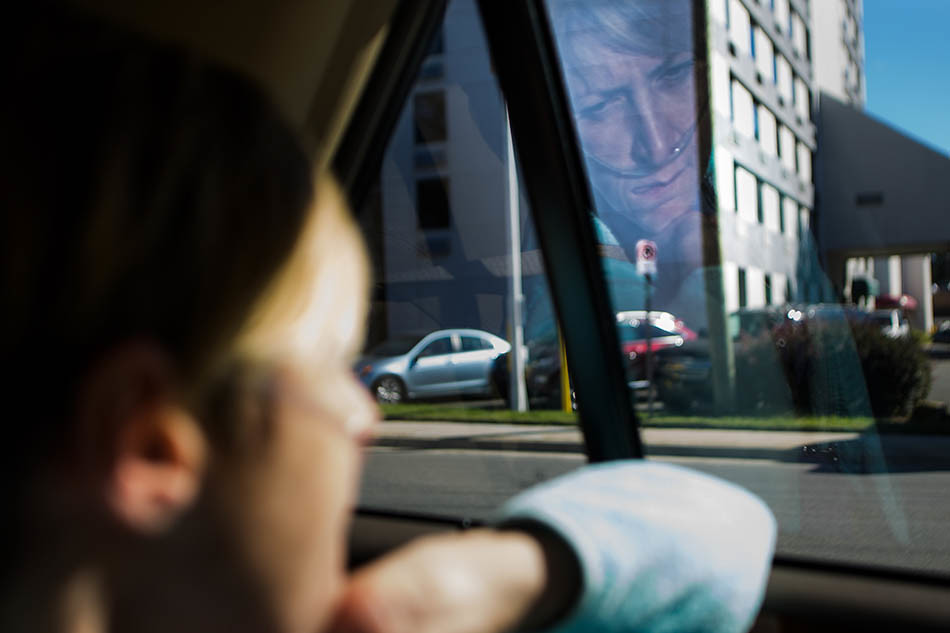
TEGAN:
I was terrified of taking on this project.
I did not understand the magnitude of organ donation, and when I became more enlightened, I felt completely overwhelmed and under qualified. Autum’s story was an important one that needed to be told and she had invited me to tell it. By the help of God, I was determined to tell it. I still don’t understand why I was given this opportunity, but I have seen it as a gift that I will continue to treasure.
I’ve grown through this story in many aspects and on several levels.
When I started, I was too much in my own head. I feared the emotional toll required to go back to the last place I had seen my older brother before he passed. Would walking those same halls trigger old memories and bring back the devastating pain of his loss? How could I hope to tell Autum’s story if my own pain was still so great? Then I began, and I quickly realized that this story wasn’t about me nor my brother. It was about Autum. My respect for my brother’s decision had brought me to Autum. My respect for Autum gave me the strength to tell her story. Of course I love my brother, but my love for Autum drove me to share her story of strength, hope and courage.
TID:
What surprised you about the experience that you didn’t expect?
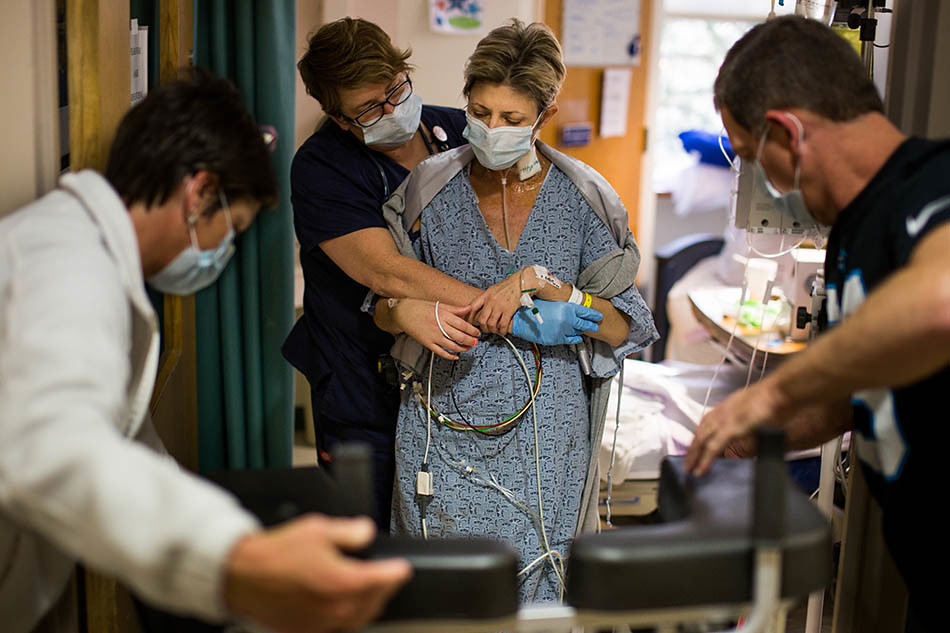
TEGAN:
I think what really surprised me was how quickly and deeply I could care for someone I had only just met. She wasn’t just a story, she was an inspiration. She was a fighter, determined to do whatever was necessary on her part. She was strong, not just for herself, but for the people around her who loved her. She was constantly considering how the things she was going through would affect those people around her. I often forget that I’ve only known her for a few short months. She seems like a friend I have known for ages.
I remember one occasion after we had first met and she had told me she did not want a transplant. I got a text from her saying that the doctors wanted her to relocate. I cried. There were many long silent car rides after I would leave Autum. My journey back to school would often be filled with many thoughts and tears.
TID:
I’m always curious how photographers problem-solve. I’m sure you’ve run into some complications. What are some and how do you overcome them?
TEGAN:
There were definitely concerns ranging from staying in optimal health on a college campus filled with rundown students during flu season to gaining access into the operating room for the surgery.
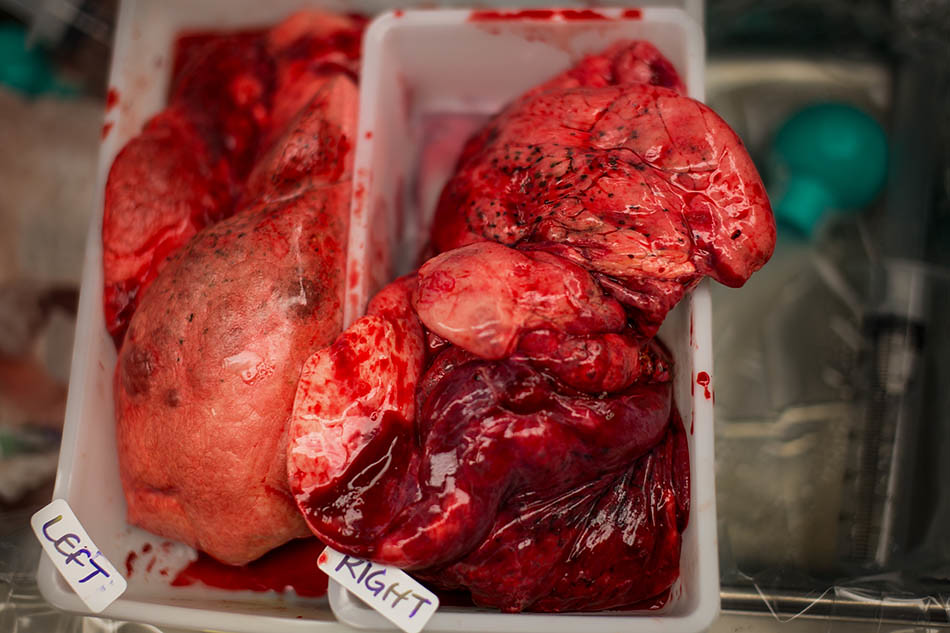
Fortunately, I have a strong immune system and always kept a stash of vitamin C in my bag, but gaining access to the operating room was a bit more challenging.
I had been told that the likelihood of that happening appeared glum, but it was not impossible. I remember getting the call early on a Saturday morning that Autum was at the hospital waiting to find out if donor lungs would be approved for her operation. I had already received a consent from Autum, her family and the surgeon performing the operation granting me access. I had sent over my vaccination and shot records, but I still needed clearance from the hospital.
The night before, I had received a packet of information to read, fill out and return to the hospital. I had completed the packet the night before, but it still needed to be returned. When I got the call, I grabbed the paperwork from my desk, my camera bag and ran to my car. I frantically began calling my hospital contact and texted him a photo of the signed paperwork.
He made necessary phone calls to people while I sat in a dark hospital room waiting with Autum, her husband, Mitch and her best friend, Kelly.
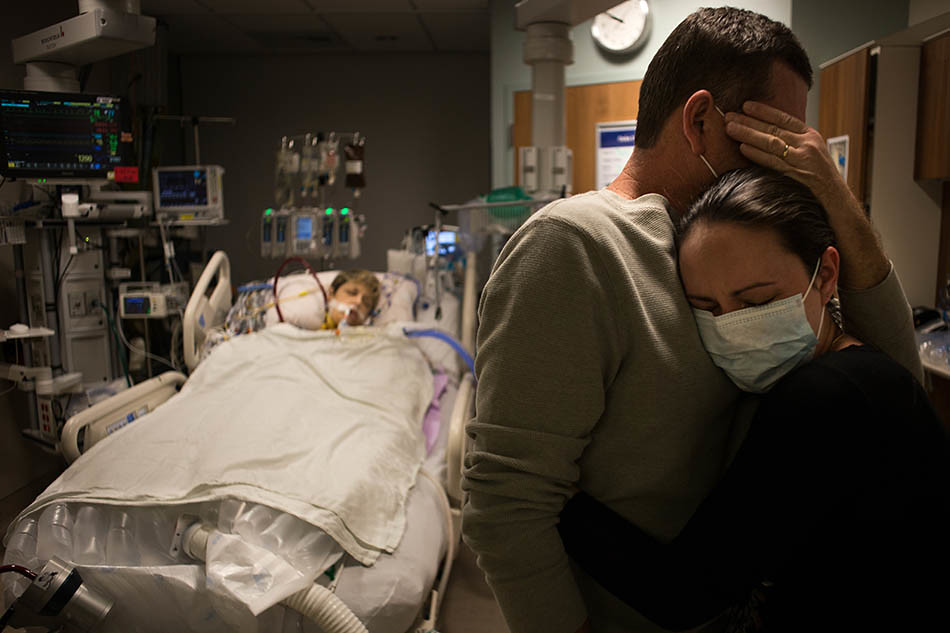
Autum waited for the call from her transplant coordinator to see if the lungs would be approved for surgery. Around 9:30 A.M. a nurse came in to talk with me about the rules of the operating room. About an hour later, Autum received the call that it was a go, and shortly afterwards, I found myself dressed in a giant bunny suit and being escorted with Autum to the OR.
My friend at Duke who had helped to arrange the quick access arrived at the surgery an hour or so into the operation. I will never forgot his comment to me that he found it amazing that I had gotten access into the operation like I had because it never happens that quickly.
TID:
What have you learned about yourself on this project?
TEGAN:
This project reminded me of the importance of relationships. I was fortunate to have learned at a young age the impact a person can have on the people around them. As I followed Autum’s journey, I saw how much Autum was invested in the lives of the people around her. She never stopped considering the needs of her family, friends and fellow transplant community members. She reminded me that to live is to invest your life in the lives of others. Autum did not know what the outcome of her surgery would be, but she did not see that as an excuse to live selfishly.
I love photojournalism because it gives me an excuse to enter a person’s life and to remind them that their story is special and worth sharing. It gives me the unique opportunity to build relationships with an array of people and to discover their struggles and accomplishments. Although photojournalists may try to maneuver through situations unnoticed, our presence carries an impact.
This story challenged me to weigh the impact my life has on the people around me and to discover how I can live responsibly and in a way that encourages others.
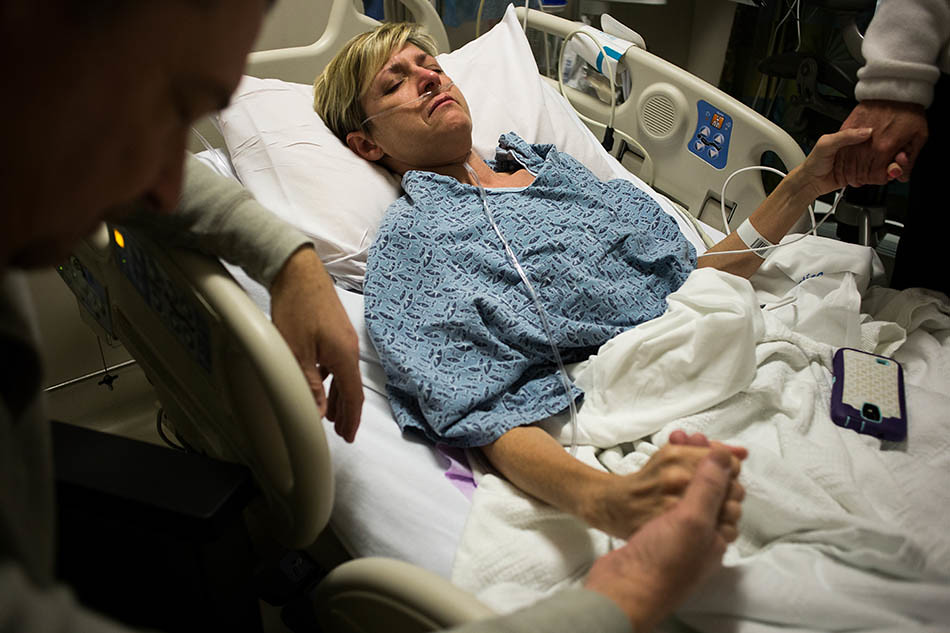
TID:
What have you learned about others?
TEGAN:
There is much to learn from the people around you.
Autum taught me the importance of living with a full heart that is invested in people and that embraces the opportunities and the challenges tucked into each new day.
She helped me to realize the significance of stories. I asked her before she went into surgery why she was willing to tell her story, she responded, “I’ve benefitted so much from other people’s stories, I just want to share mine to help educate and encourage someone else.”
TID:
Now, onto the moment. Can you tell us what was going on in the lead picture and how you mentally worked through the scene to capture the image?
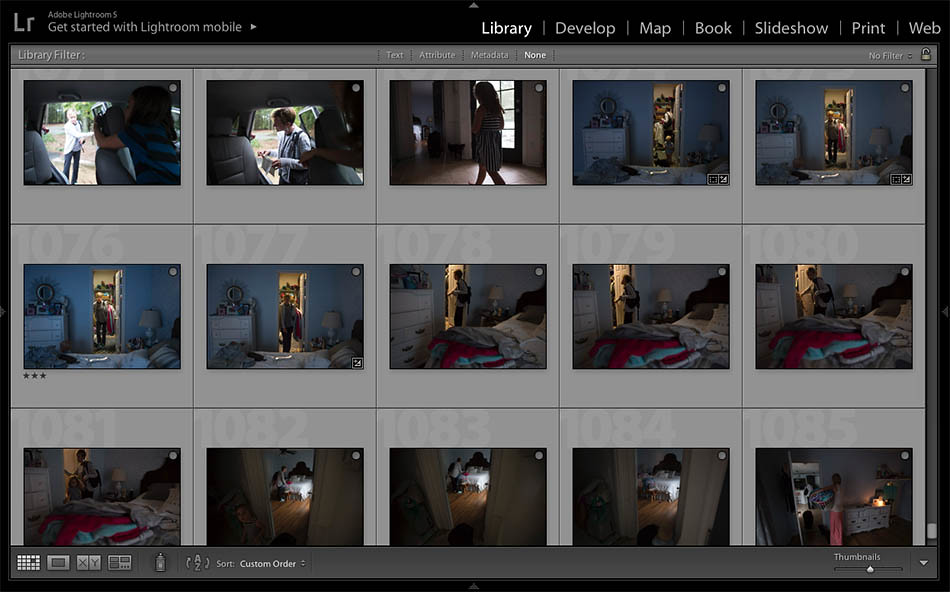
TEGAN:
This image was taken while Autum was moving from her home in Autryville, N.C. It was the last time she walked through her closet before moving to Durham, N.C., to prepare for the transplant.
Autum spent her whole life in this quiet, little country town. She had attended the same church since she was a little girl, and the majority of her friends and family had lived within a few miles of her home there. I knew the transition from her hometown to the busy and stressful city life of Durham would be daunting to her. Not only was she about to prepare for an operation that she didn’t know if she would survive, but it required that she had to move two and a half hours away from the comforts of everything familiar.
It was difficult to photograph because I could see her pain. Having only known her for just over a week, I had to fight the discomfort of feeling I was intruding on such tender moments. I spent time with her on her last day there. It was a Sunday and she was in church surrounded by her friends, followed by having lunch with her family, and then saying goodbye to two of her dogs that she would not get to keep after the transplant. After a long and emotional day, I think this moment was one of the quieter expositions of her realization that she didn’t know if and when she would come home.
TID:
What advice would you give other photographers?
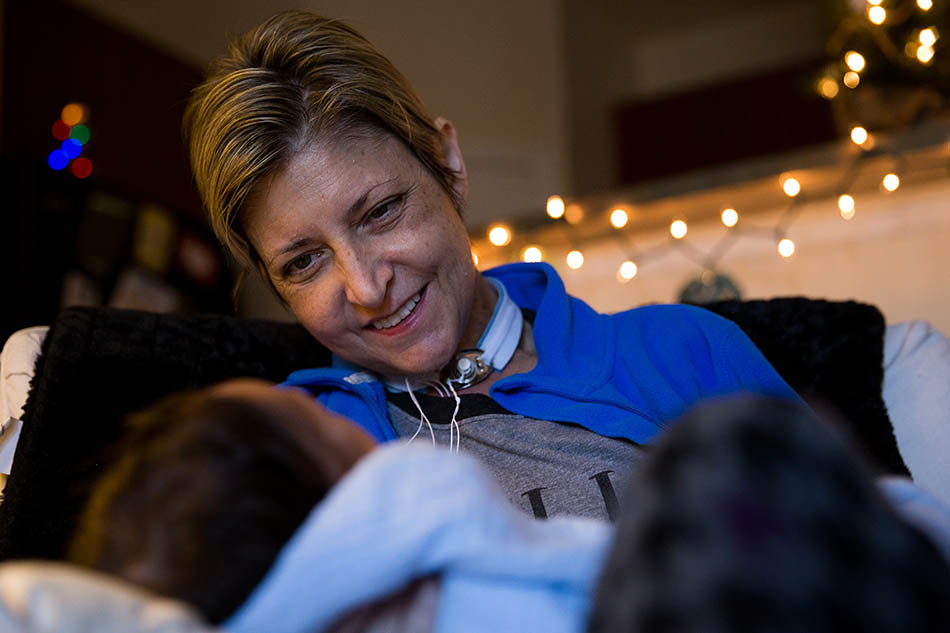
TEGAN:
Take on the stories that may scare you and remove you from your comfort zone. When I started this project, my immediate thought was “I’m not qualified to tell this story.” I felt unprepared in every aspect and I was worried my limited experience might sabotage this beautiful story. When I realized, however, that what I had been given was a gift Autum had entrusted to my care, I was committed to push myself to do the best that I possibly could in telling it.
TID:
Finally, can you give us an update on Autum?
TEGAN:
Fifty-three days after the transplant, Autum was released from the hospital. After about two more months of rehab, she was allowed to go back to her home in Autryville, where she has continued to improve. She recently told me that she feels like a regular person with good lungs and is in awe every day of the miracle that has taken place.
:::BIO:::
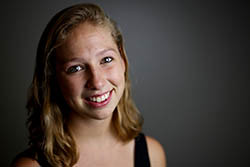
Tegan recently graduated from the School of Media and Journalism at the University of North Carolina at Chapel Hill. She's inspired by the everyday heroes and risk-takers who challenge the world around them and strive to make it a brighter place. Tegan looks for stories that could help encourage, inspire and educate others through different challenges or injustices. People go through different trials and triumphs and she believe each person is a living story that helps connect and transform this beautifully diverse world. Her life has been enriched by the people she's met and it's her privilege to share some of their stories with others.
To see more of her work: